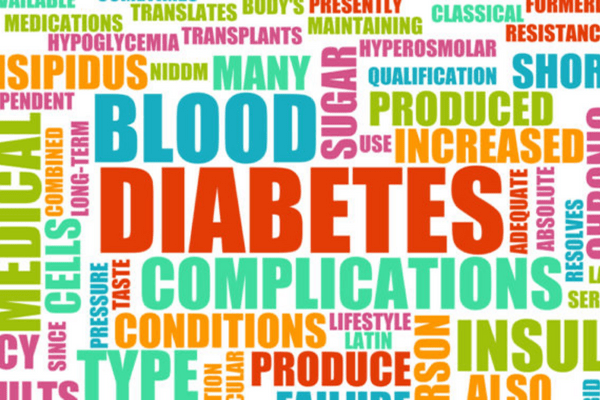Diabetes is a chronic medical condition. It is important that blood glucose is well controlled. HbA1c helps to understand how good the control is.
What is HbA1c?
HbA1c or glycated haemoglobin or glycosylated haemoglobin is a simple blood test to measure your long-term diabetes control. It is used to measure the amount of glucose which is attached to the protein in the red blood cells in the body.
The readings you get on your own glucometer by pricking your finger, only lets you know what your blood glucoses is at that particular point in time. Where as HbA1c provides an average blood glucose over the last three to four months.
Glucose gets attached to the haemoglobin in red blood cells and some other tissues in the body. The average life of a red blood cell is about 120 days. The higher the blood glucose level, the greater the amount of glucose attached to these red blood cells and tissues.
By carrying out the HbA1c test, we can tell your average blood glucose control over the last three to four months. The more glucose that is stuck to the cells and tissues, the higher the HbA1c will be and the greater the risk of diabetes related complications.
How is the HbA1c test done?
The test is carried out using a small amount of blood either from a finger prick sample or venous sample from your arm.
What should my HbA1c be?
The usual HbA1c result in someone without diabetes is between 22-42mmol/mol.
Ideally the target range for someone with diabetes would be between 42-53mmol/mol.
Keeping HbA1c within this range, reduces the risk of diabetes related complications including, retinopathy (eye complications), nephropathy (kidney disease) and neuropathy (nerve damage) and possibly heart disease. Remember any reduction in HbA1c towards the target is beneficial if carried on in the long term. Good blood glucose control prevents complications like amputations and COVID-19 related problems.
Targets for HbA1c should be individualised and set for each person with diabetes depending on the benefits and risks of lowering your blood glucose.
Before getting pregnant and during pregnancy, the HbA1c result may need to be even closer to the non-diabetic range to prevent complications during delivery and prevent any problems to the baby.
Is HbA1c used in the diagnosis of diabetes?
HbA1c is used in the diagnosis of prediabetes and diabetes. Please see below:
Normal: Below 42 mmol/mol ( Below 6.0%)
Prediabetes: 42 to 47 mmol/mol (6.0% to 6.4%)
Diabetes: 48 mmol/mol or over (6.5% or over)
What is the link between your blood glucose levels and your HbA1c result?
In people who do not have diabetes blood glucose remains below 7 mmol/l, and HbA1c less than 42mmol/ml.
Below is shown what HbA1c you are likely to have based on the blood glucose levels:
- Blood glucose mostly under 10mmol/l 42-53 mmol/mol
- Blood glucose frequently over 10mmol/l 64-108 mmol/mol
- Blood glucose mostly over 17 mmol/l More than 119 mmol/mol
It is important to remember that HbA1c is not the same as blood glucose. The HbA1c reflects your blood glucose levels before meals (fasting) and after meals. Therefore, to get a good HbA1c, blood glucose levels for both fasting and after meals (post prandial) need to be lowered.
What happens if my HbA1c result is out of target range?
Your diabetologist can help you to get better control of your diabetes by altering your medication, activity, sleep hygiene and several other factors.
Can I get false HbA1c readings?
Yes, in certain conditions HbA1c may not be accurate.
Below are some conditions which may results in false HbA1c results:
- Anaemia
- Uraemia (renal failure)
- Abnormal haemoglobin or haemoglobinopathy
- Chronic alcoholism
- High dose vitamin C and E
Click on the links to learn more about Type 1 diabetes and Type 2 diabetes.
Dr Chinnadorai Rajeswaran is a consultant Physician specialising in Endocrinology, Diabetes and Obesity. As a private endocrinologist he has private endocrine, diabetes and weight loss clinics in Harley Street, London, Chennai (India), Claremont Hospital, Sheffield, Nuffield Hospital, Leeds and Simplyweight, Bradford.
He has face to face consultations with people from Barnsley, Rotherham, Chesterfield, Doncaster, Wakefield, Huddersfield, Bradford, Harrogate, Leeds, Sheffield, London and Chennai (India). He also offers video consultations.




